Throughout history, women have played crucial roles in shaping our world, often in the face of overwhelming odds. From mighty queens to brilliant scholars, these remarkable individuals left indelible marks on their societies and beyond. Their stories, sometimes overlooked or forgotten, offer inspiration and insight into the power of determination and intellect. In this exploration of ancient history, we’ll uncover the lives of 15 extraordinary women who defied expectations, challenged norms, and changed the course of human events. Their achievements span continents and centuries, reminding us that the impact of one person can echo through the ages.
Hatshepsut: Egypt’s Female Pharaoh

Hatshepsut ruled Egypt for over 20 years during the 15th century BCE, longer than any other woman of an indigenous Egyptian dynasty. She oversaw extensive building projects and restored trade networks, bringing great wealth to Egypt. Hatshepsut often depicted herself as a male pharaoh, complete with a false beard, to cement her authority in a male-dominated society. Her reign was marked by peace and prosperity, with her famous expedition to the Land of Punt bringing exotic goods and plants back to Egypt.
Cleopatra VII: The Last Active Ruler of the Ptolemaic Kingdom
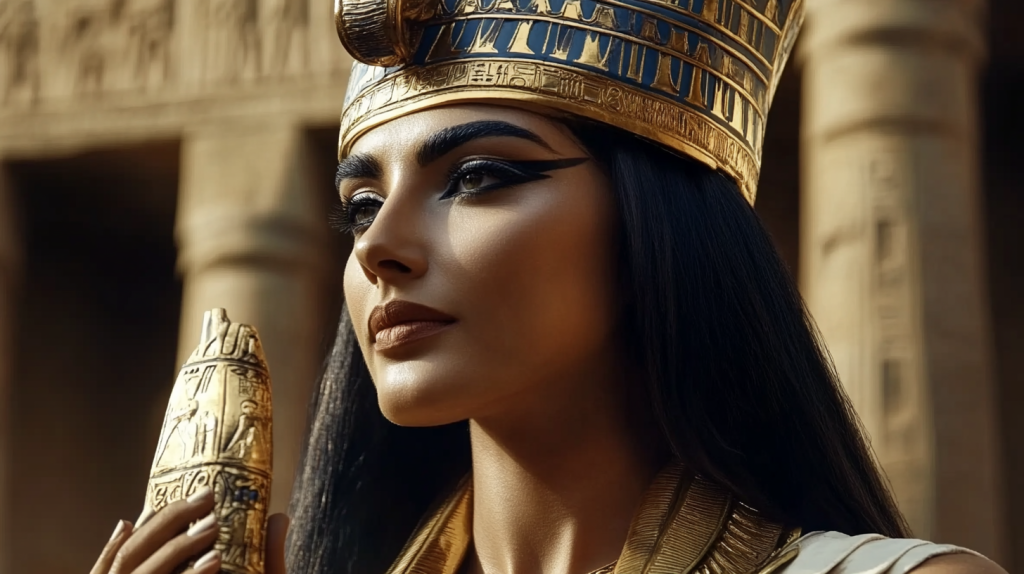
Cleopatra VII, the last active ruler of the Ptolemaic Kingdom of Egypt, was a skilled diplomat and naval commander. She was fluent in nine languages and was the first Ptolemaic ruler to learn the Egyptian language. Cleopatra’s alliances with Julius Caesar and Mark Antony, and her eventual defeat by Octavian, changed the course of both Egyptian and Roman history. Her strategic use of her wit, charm, and intelligence allowed her to maintain Egypt’s independence for longer than many thought possible.
Boudicca: The Warrior Queen of the Iceni

Boudicca led a major uprising against occupying Roman forces in ancient Britain in 60-61 CE. After suffering humiliation and brutality at the hands of the Romans, she united several tribes and nearly drove the Romans out of Britain. Although ultimately defeated, Boudicca’s rebellion sent shockwaves through the Roman Empire and secured her place in British folklore. Her uprising resulted in the destruction of several Roman settlements, including Londinium (modern-day London), and caused Emperor Nero to consider withdrawing Roman forces from Britain entirely.
Wu Zetian: China’s Only Female Emperor

Wu Zetian rose from concubine to become the only woman in Chinese history to rule as emperor in her own right. During her reign (690-705 CE), she expanded the Chinese empire, supported the arts and literature, and implemented reforms that gave women more rights. Wu’s rule marked a rare period of female leadership in ancient China. She also established a secret police force to maintain her power and instituted a system of written examinations for government positions, which remained in place for centuries.
Hypatia of Alexandria: Philosopher and Mathematician
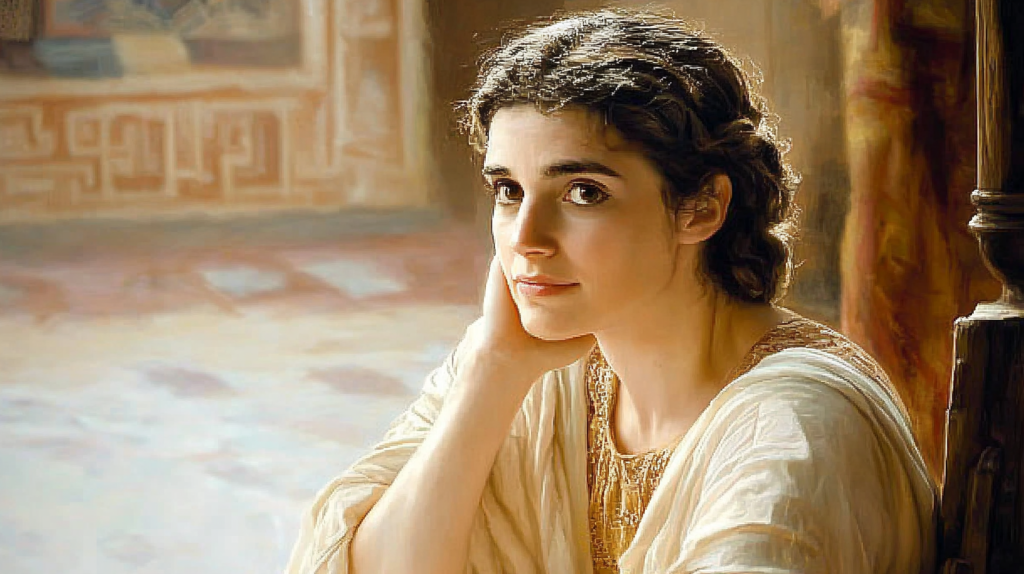
Hypatia was a renowned philosopher, mathematician, and astronomer in 4th century CE Alexandria. She taught at the Neoplatonic school and wrote commentaries on important mathematical and astronomical texts. Hypatia’s brutal murder by a Christian mob in 415 CE symbolized the end of classical antiquity in Egypt. Her work on conic sections and her invention of the astrolabe and hydrometer contributed significantly to the fields of mathematics and astronomy.
Artemisia I of Caria: Naval Commander and Persian Ally
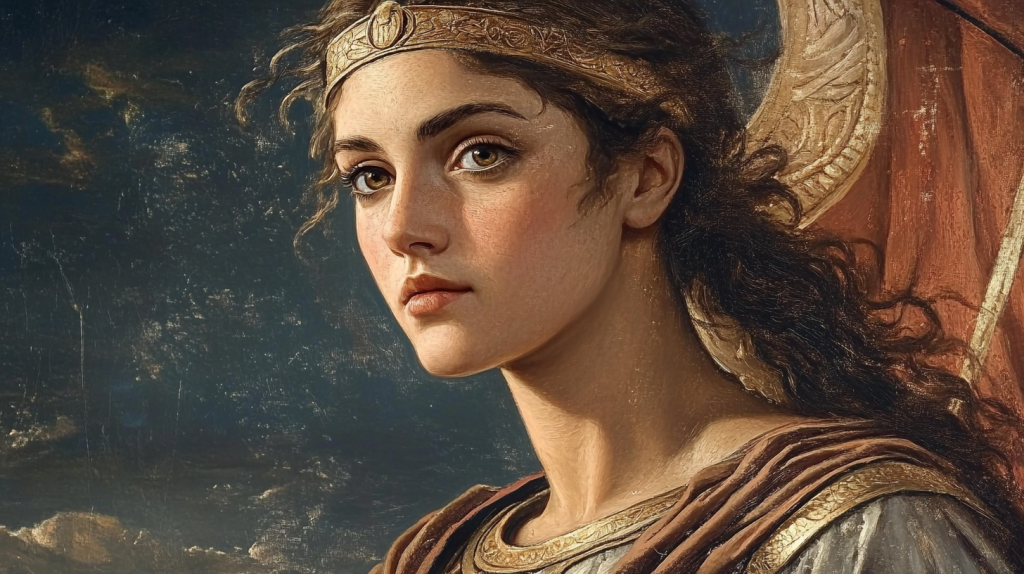
Artemisia I was the queen of Halicarnassus and a naval commander who fought for Persia during the second Persian invasion of Greece. She was known for her strategic acumen and bravery in battle. Greek historian Herodotus praised her wisdom and noted that Persian King Xerxes valued her advice above all his other allies. After the Battle of Salamis, where she distinguished herself, Xerxes is said to have remarked, “My men have become women, and my women men.”
Enheduanna: The World’s First Known Author

Enheduanna, daughter of Sargon of Akkad, lived in ancient Mesopotamia around 2285-2250 BCE. She was the high priestess of the goddess Inanna and the moon god Nanna. Enheduanna is considered the world’s first known author and the first person to write in the first person, creating deeply personal poems that influenced later Mesopotamian literature. Her most famous work, “Nin-me-šara” (The Exaltation of Inanna), is a complex literary masterpiece that blends personal devotion with political commentary.
Theodora: From Actress to Empress
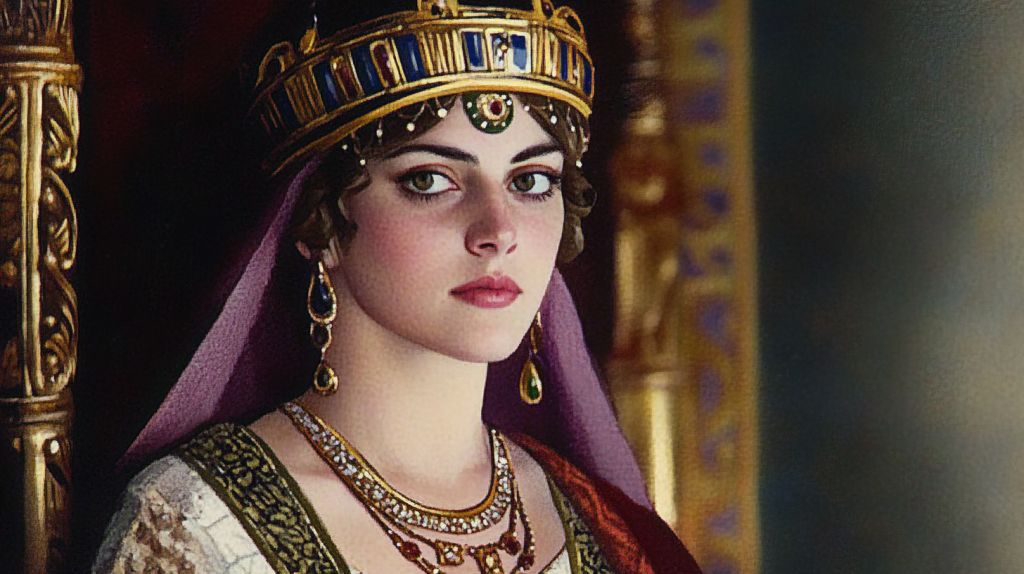
Theodora rose from humble beginnings as an actress and courtesan to become one of the most powerful women in Byzantine history. As empress consort to Justinian I, she was his partner in power, influencing policy and even saving his throne during the Nika riots. Theodora was instrumental in passing laws that expanded women’s rights in divorce and property ownership. She also played a crucial role in the reconstruction of Constantinople, including the building of the magnificent Hagia Sophia.
Tomyris: The Warrior Queen Who Defeated Cyrus the Great
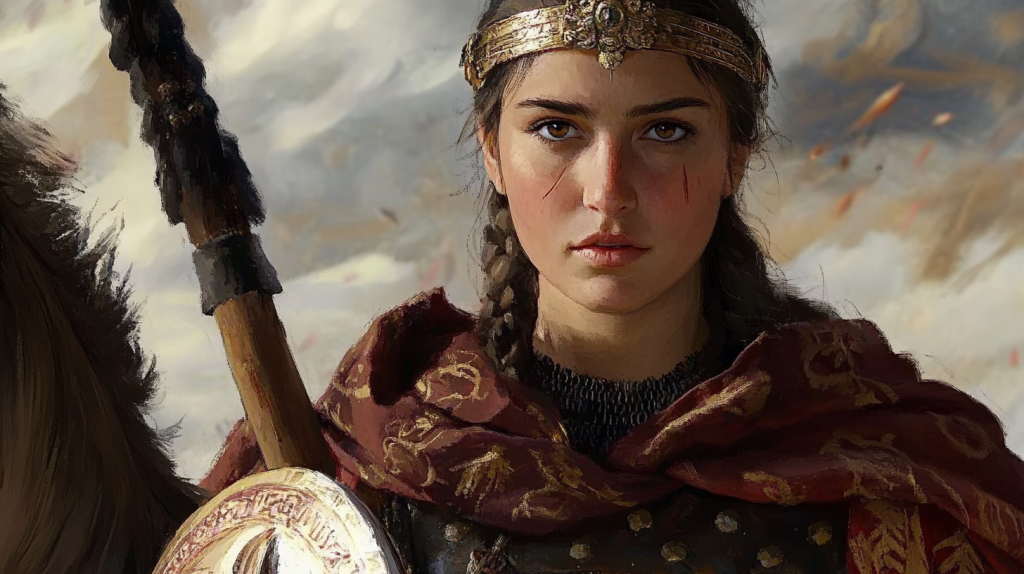
Tomyris was the queen of the Massagetae, a Central Asian nomadic confederation. According to Herodotus, she led her armies to victory against Cyrus the Great of Persia in 530 BCE. After Cyrus killed her son through trickery, Tomyris defeated and killed him in battle, reportedly dipping his head in blood to fulfill her vow of vengeance. Her victory over Cyrus marked the end of his empire’s expansion and secured her reputation as a formidable military leader.
Zenobia: The Rebel Queen of Palmyra

Zenobia was the 3rd-century queen of the Palmyrene Empire in Syria. She led a famous revolt against the Roman Empire, conquering Egypt and much of Asia Minor. Zenobia’s short-lived empire and her reputation as a cultured, intelligent ruler have made her a romantic figure in history and literature. She was known for her beauty and intelligence, and was said to be well-versed in history, speaking several languages including Egyptian.
Olympias: Mother of Alexander the Great

Olympias, a princess of Epirus, was the wife of Philip II of Macedon and mother of Alexander the Great. Known for her fierce and protective nature, she played a significant role in Macedonian politics. After Alexander’s death, Olympias continued to wield considerable influence, even leading troops in battle to secure her grandson’s claim to the throne. She was also known for her devotion to mystery cults, particularly those associated with Dionysus, which added to her exotic and sometimes fearsome reputation.
Agrippina the Younger: Power Player in Imperial Rome
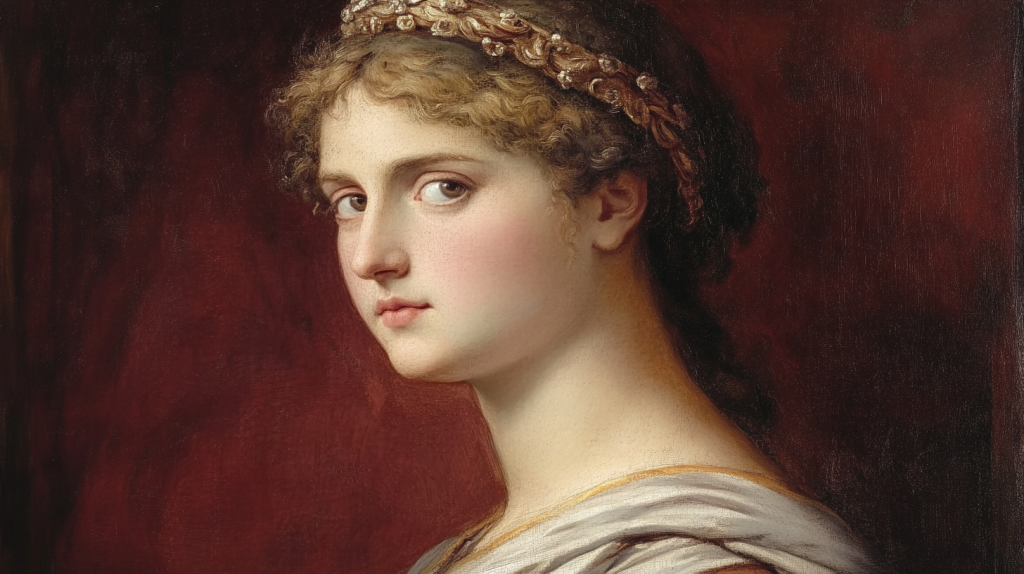
Agrippina the Younger was one of the most prominent women in the Julio-Claudian dynasty of ancient Rome. Sister of Caligula, wife of Claudius, and mother of Nero, she wielded extraordinary influence in imperial politics. Agrippina wrote her memoirs, a rarity for women of her time, providing invaluable insights into the Roman imperial court. She was also the first woman to appear on Roman coins in her own lifetime, a clear indication of her power and influence.
Trung Sisters: Vietnamese Freedom Fighters

The Trung Sisters, Trung Trac and Trung Nhi, led a rebellion against Chinese rule in Vietnam in 40 CE. They successfully repelled the Chinese for three years, establishing an independent state. Although eventually defeated, the Trung Sisters became powerful symbols of Vietnamese independence and are still celebrated as national heroines today. Their rebellion involved over 60 cities and settlements, and they are said to have led their armies into battle on elephants.
Hildegard of Bingen: Medieval Polymath

Although slightly later than ancient history, Hildegard of Bingen was a 12th-century Benedictine abbess who made significant contributions to multiple fields. She was a writer, composer, philosopher, mystic, and visionary. Hildegard wrote influential theological and medicinal texts and is considered a pioneer of natural history in Germany. Her musical compositions are among the largest known collections by a medieval composer, and she is often considered the founder of scientific natural history in Germany.
Nefertiti: Egypt’s Mysterious Queen

Nefertiti was the Great Royal Wife of Pharaoh Akhenaten and may have ruled as Pharaoh in her own right after his death. She played a crucial role in the religious revolution that saw Egypt briefly shift to monotheism under the cult of Aten. Nefertiti’s famous bust has made her face one of the most recognizable images from ancient Egypt. Some scholars believe she may have ruled Egypt as Pharaoh Neferneferuaten after Akhenaten’s death, although this remains a subject of debate among Egyptologists.
Katy Willis is a writer, master herbalist, master gardener, and certified canine nutritionist who has been writing since 2002. She’s finds joy in learning new and interesting things, and finds history, science, and nature endlessly fascinating.

